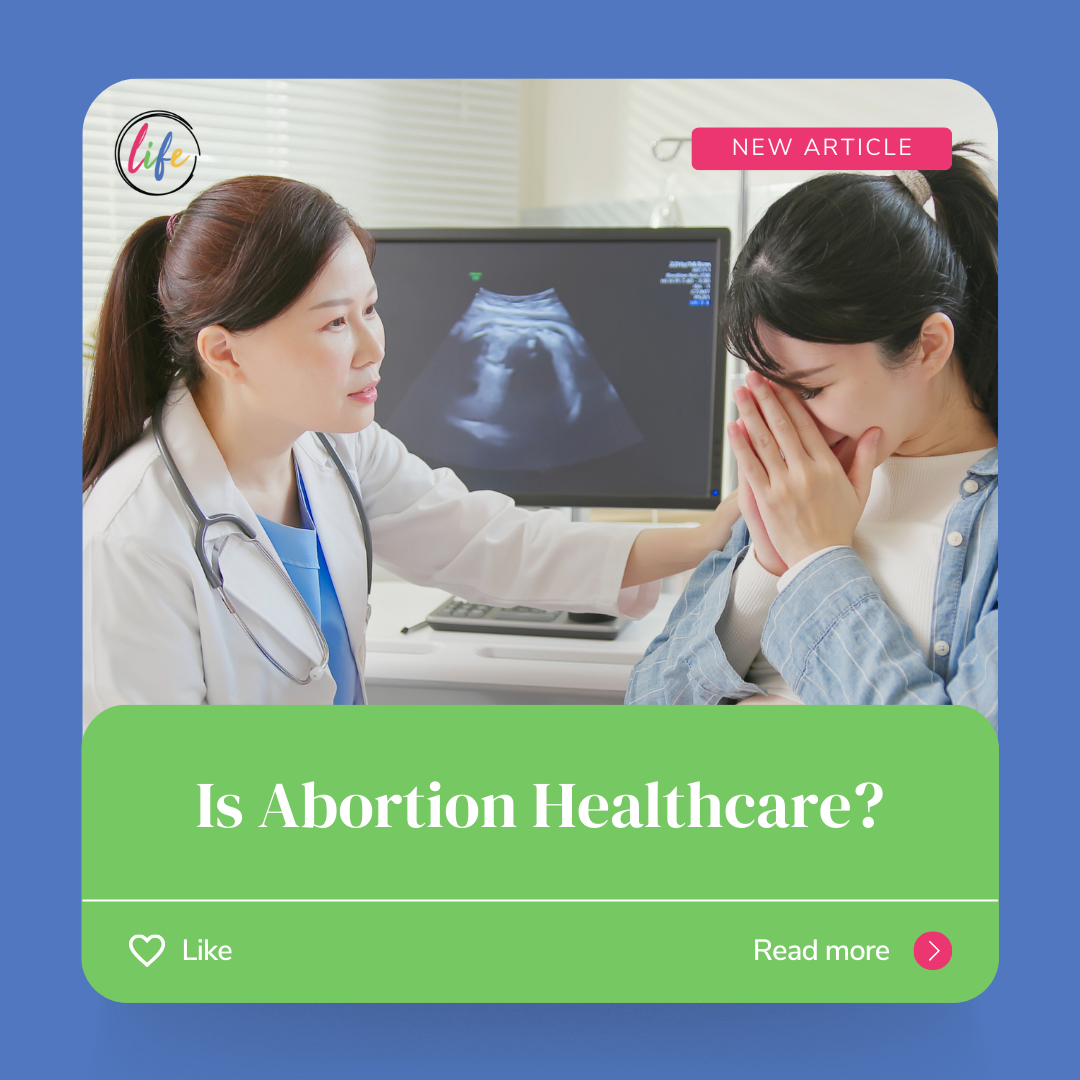
Choice proponents believe women have a right to abortion because it is an essential healthcare procedure. Is abortion healthcare? To answer this question, we must define “healthcare” and take a closer look at abortion’s role in healthcare:
Defining “healthcare”
The Merriam-Webster Dictionary defines “healthcare” as the “efforts made to maintain, restore, or promote someone’s physical, mental, or emotional well-being especially when performed by trained and licensed professionals.”

Does abortion maintain or restore one’s overall health? Let’s dissect this!
Physical health and abortion
Choice proponents assert that abortion is healthcare because it maintains or restores a woman’s physical health. However, pregnancy is not a disease state. Pregnancy is actually an indicator of reproductive health. Pregnancy is also temporary with or without medical intervention.
Can abortion be necessary in some medical situations? The Charlotte Lozier Institute reports that only .2% and 2.5% of abortions are related to life/major bodily function and physical health, respectively. Meanwhile, 95.7% of abortions are elective/unspecified. Therefore, the majority of pregnancies do not require medical intervention to protect women’s health. In the rare event that a woman’s health is at risk, the woman’s life rightly takes precedence. Every pro-life law has this protection.
Abortion itself poses many risks to a woman’s physical health. Post-abortive women may experience complications such as damage to the womb or cervix, excessive bleeding, infection of the uterus or fallopian tubes, scarring of the uterus, sepsis or septic shock, uterine perforation, or even death.
A 2004 study from Finland, found that deaths following abortion were over three times higher than after childbirth. Furthermore, a 2002 U.S. study by Dr. David Reardon linked Medicaid treatment records and death certificates and found significantly higher rates of death associated with abortion than with childbirth.
The recent increase in chemical abortion appears to pose additional dangers. “Short-Term Adverse Outcomes After Mifepristone–Misoprostol Versus Procedural Induced Abortion”, was written by Ning Liu and Joel G. Ray, two researchers from the University of Toronto. The study appeared in the online edition of the Annals of Internal Medicine on January 3, 2023. The researchers found complications with both surgical and chemical abortion, but decidedly more for those undergoing chemical procedures with mifepristone. Liu and Ray found that nearly 10.3% of chemical abortion patients visited their ER with some concern or complaint.
Mental/emotional health and abortion
As a society, we are making leaps and bounds destigmatizing mental health and making it a key component of public healthcare. There are now a plethora of resources and treatments for those struggling with their mental health. Choice advocates believe abortion is one of the essential procedures safeguarding women’s mental health.
Choice advocates assert that “forcing” a woman to carry a pregnancy to term — or parent a child before she is mentally and emotionally prepared to — is wrong. They believe an unintended, unwanted pregnancy would cause or exacerbate mental health issues. However, existing research shows that abortion does not maintain or restore women’s mental health. Many post-abortive women experience long-term, frequent feelings of loss, grief, or sadness.
Regret and feelings of coercion are common emotions with post-abortive women. “Women Who Suffered Emotionally from Abortion: A Qualitative Synthesis of Their Experiences”, published in the Journal of American Physicians and Surgeons, reported that “58.3% of the women reported aborting to make others happy, 73.8% disagreed that their decision to abort was entirely free from even subtle pressure from others to abort, and 28.4% aborted out of fear of losing their partner if they did not abort.”
Is abortion healthcare?
Knowing what we do about healthcare, abortion cannot be considered an essential healthcare procedure, as it poses both physical and mental health risks. Furthermore, abortion involves the taking of innocent lives — the lives of the unborn. Except in extremely rare medical situations, abortion does not help anyone involved.
If we care about the physical and mental health of women (and the unborn), we must offer resources and assistance to those in need.
Learn more about the various stages of fetal development (conception, first, second, and third trimester) and don’t forget to follow us on social media (Facebook, Instagram, and TikTok).